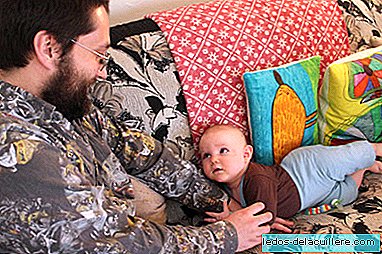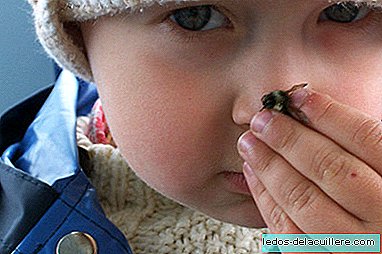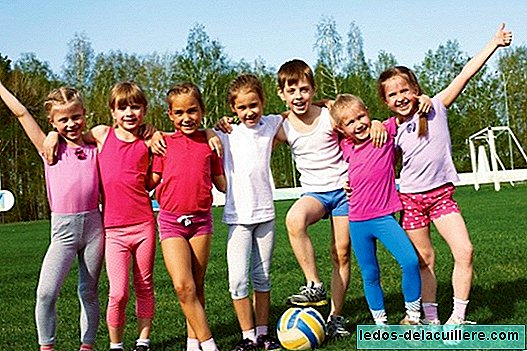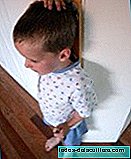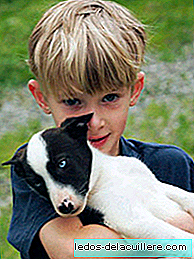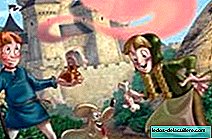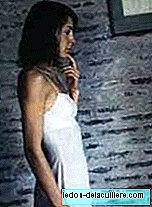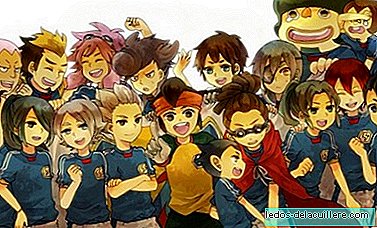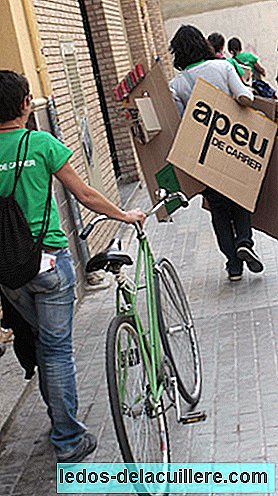In recent days, a news item published by El Salto has come to light that ensures that the AEP charged more than two million euros in five years for lending its logo to children's products from the food, pharmaceutical and childcare companies. The most worrying thing is that some of them are infant food products of doubtful nutritional value such as cookies or cereals with excess sugar, and others are completely expendable.
The issue is not new. In 2015 nutritionists and dietitians asked the AEP to withdraw the endorsement of Dinosaurus cookies and the association published a clarification on the cookies saying that it was not a "guarantee" to the product, but that they are "entities that collaborate" with the association And they can use the logo on their packaging. The stamps have disappeared from some products, but we have gone to the supermarket to collect what baby foods today carry the seal of the AEP in their packaging.
What does the AEP seal mean
The AEP clarified three years ago that does not grant endorsements to any product. The seal implies that the company is a collaborating entity with the Association and can make it public in the packaging of its products if desired:
The AEP, and always in accordance with the norms contained in its Ethical Framework and with the recommendations of its Bioethics Committee, maintains collaboration agreements with organizations and entities for the promotion of CSR training and programs (corporate social responsibility) for activities of promotion of children's health, among them, with companies from different sectors. These agreements do not affect products in any case, and if these companies want to make this collaboration public, they are only authorized to indicate that they are a “collaborating” entity with the AEP.
However, when choosing between one and another food, the seal of a prestigious medical entity functions as a symbol of trust for parents looking for adequate food for their children. Even if you don't expressly say that you guarantee it the consumer perceives it as a product recommended or approved by the AEP.
The seal has disappeared from the cookies
At the time, the request for the AEP to withdraw its endorsement of Dinosaurus biscuits (containing 21% sugar) ran like wildfire, and despite responding and explaining that it was not an "endorsement" and asking the company in question to rectify, the seal continued on the cookies.
I would be very grateful if you share this request that I formulate to @aepediatria. pic.twitter.com/aQSW5z4pwC
- Julio Basulto (@JulioBasulto_DN) May 30, 2015
After three years since then, today neither Dinosaurus cookies nor Tosta Rica who also took him at some point, (both belonging to the Adam Foods group - Artiach, Cuétara-), they already have the AEP seal in their boxes, probably because the collaboration agreement with the company has expired. Nor is the seal found in the Nestlé Chocapic cereals, which once appeared.
However, there are other infant feeding companies that currently have agreements with the AEP as partner companies and carry the seal on some of their products. We have gone to the supermarket and we have found at least eleven products with the seal in its packaging. We tell you which ones and we specify its sugar content, quite high in some cases.
Yogurt My First Danone
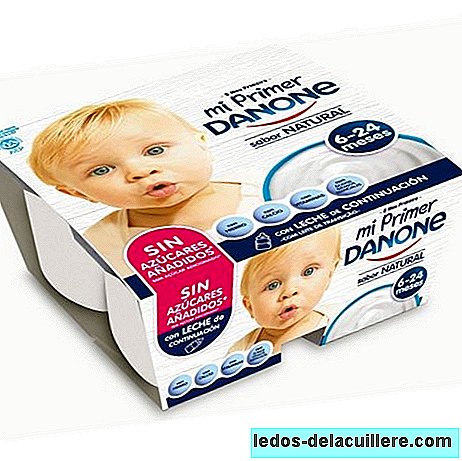
It is a yogurt made with continuation milk for babies from six months available in two flavors (natural and three fruits) that has recently improved its recipe to eliminate added sugars, but for many an unnecessary product in the baby's diet even little recommendable. Its sugar content, 2.6 per 100 g.
Puleva Peques 2 and 3 growth milks

Milk for children from six months to three years enriched with prebiotics, amino acids, minerals, vitamins, etc. There are conflicting opinions about whether growth milks are really necessary to supplement the child's diet, since starting the year he can start drinking whole cow's milk or better, continue to drink breast milk.
In their nutritional information we see that they contain 3.1 and 3.3 g of sugars respectively per 100 ml, naturally present in milk in the form of lactose (not considered free sugars). Puleva Peques 3 without added sugars.
Nestlé Junior 1+ and 2+ growth milks

Growth milk for babies from the first year, and after the second year, enriched with iron, calcium, zinc, 13 vitamins and now without palm oil. In its nutritional labeling we see that it contains 4.9 g and 6.9 g of sugars per 100 ml respectively.
Nestle 8 cereals

Infant cereals for baby porridge from six months containing eight cereals: wheat, corn, rice, barley, rye, millet, sorghum and oats. In this post we talk about the amount of sugars contained in baby cereals. These in particular, between natural and added, in total 26.3 g per 100 g. One take would be equivalent to 25 g of cereals + 160 ml of milk.
Nestle 8 cereals with honey

For babies from six months with honey. Honey? Children under one year of age should not be given honey because of the risk of botulism, however in cereals it is processed in such a way that the spores of the bacteria causing the disease are destroyed. As for sugars, it contains 31 g per 100 g.
Nestlé 8 cereals with cocoa

Cereals hydrolyzed for babies from twelve months, with added cocoa enriched with iron, zinc and 8 vitamins. Without palm oil and although it says "0% added sugars" and it contains naturally present sugars. Remember that with the hydrolysis process to which they are subjected, cereals are transformed into free sugars (mainly glucose), which we should also reduce in the diet of children. The total amount in this product, 29 g of sugars per 100 g.
Nestlé 8 cereals with Maria cookie

Also after six months and add Maria cookie. Its sugar content is 24.6 g per 100 g.
Brick Puleva Peques 3 with cereals and fruit

Partially skimmed milk with cereals and fruit, enriched with Omega 3 DHA and iron supply for children 1 to 3 years. Its sugar content: 6.8 g per 100 ml. Each brick contains 200 ml, which is equivalent to 13.6 g per container.
Of this sugar, approximately 50% is lactose (sugar naturally present in milk). The added sugar content per serving represents 15% of the maximum amount recommended by WHO.
Brick Puleva Peques 3 with cereals and cocoa

The same product as the previous one, but with cocoa instead of fruits. The same sugar content, 6.8 g per 100 ml.
Of this sugar, 40% is lactose. The sugar content added per serving represents 18% of the maximum amount recommended by WHO.
Puleva Max

Milk drink for children from three years old enriched with Omega 3 DHA, Iron and 12 vitamins. Within its range we can find the classic, the beverage with added cereals and lactose free. Its sugar content: 5.3 g, 6.5 and 5.8 g per 100 mlrespectively.
Approximately 75% of the sugar is naturally present in milk (lactose in the classic variety and glucose / galactose in the lactose-free variety). The added sugar represents per serving (one glass) 7% of the maximum amount recommended by the WHO. In the cereal variety, the added sugar represents 14% of that amount per serving.
Nestlé Junior 1+ and 2+ with Maria cookie flavor

Growth milk for children from the year enriched with iron, calcium, zinc, 13 vitamins, and with the contribution of biscuit, also carbohydrates. They contain 7.8 g of sugar and 6.9 per 100 mlrespectively.
How much sugar is too much?
Recall that the WHO recommendation is that of not exceed 10% of daily calories and that the ideal would be not to exceed 5% of free sugars. For example, for a child of 2 or 3 years, on a diet of 1,000 calories would be 100 calories, that is 25 grams of sugar at most per day, the equivalent of 6 teaspoons.
On the other hand, there are organizations such as the American Heart Agency that recommend not giving sugar (anything) to children under two years.
These are at least Eleven baby food products that we found today with the AEP seal. Surely there are some more, which you can give us in the comments. As well as leave us your opinion about the medical association allowing brands to use their seal in some products that are not essential in the children's diet and some with lots of sugar.
Note: Babies and more have contacted the press agency of the AEP to contrast the news of El Salto but we have not received a response.


